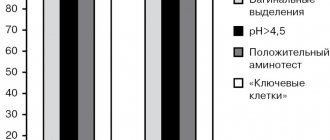pharmachologic effect
Betahistine, the active substance of the drug, is a synthetic analogue of the natural mediator histamine . The drug exhibits pronounced histamine activity in relation to H1 and H3 receptors. The active substance also has a vasodilating effect. The drug has a direct effect on cochlear blood flow and the condition of the vestibular apparatus. Betahistine affects the histaminergic system, which determines the normal functions of the vestibular systems.
Histaminergic neurons are responsible for the process of conducting impulses from receptors and vestibular nuclei.
Under the influence of betahistine, evoked and spontaneous impulses from vestibular structures are suppressed. Betahistine helps improve microcirculation, increases the level of permeability of capillary walls, and stabilizes endolymphatic pressure in the inner ear.
When treating Vestibo, the condition of patients who have problems with the functioning of the vestibular apparatus improves, the intensity and frequency of dizziness decreases, and symptoms of tinnitus are eliminated. People who suffer from hearing loss notice its improvement. There is also an indirect effect of the drug on the vessels of the inner ear, an increase in the lumen of blood vessels, which ultimately leads to improved blood flow. Vesti helps to activate cerebral blood flow.
The drug does not impair concentration and does not affect the body as a sleeping pill or sedative. The drug does not affect the secretion of gastrointestinal glands and does not interact with H2-histamine receptors. The anti-edematous, anti-allergic, anti-inflammatory effect is weak and has no clinical significance.
Interaction with other drugs and other types of interactions
In vivo studies aimed at studying interactions with other drugs have not been conducted. Given these in vitro studies, inhibition of cytochrome P450 enzyme activity in vivo is not expected.
Data obtained in vitro indicate inhibition of betahistine metabolism by drugs that inhibit monoamine oxidase (MAO) activity, including MAO subtype B (for example, selegiline). Caution is recommended when using betahistine and MAO inhibitors (including selective MAO subtype B) simultaneously.
Because betahistine is a histamine analog, interaction between betahistine and antihistamines could theoretically affect the effectiveness of one of these drugs.
Indications for use of Vestibo tablets
The following indications for the use of Vestibo are determined:
- vestibular and labyrinthine disorders (pain and tinnitus, dizziness , headaches, hearing loss, fainting, vomiting and nausea, impaired spatial orientation and balance);
- dropsy of the labyrinth of the inner ear;
- vestibular dysfunction having an infectious etiology;
- manifestations of post-traumatic vestibular dysfunction;
- benign dizziness that occurs after surgery;
- Meniere's disease.
The drug is also used in the complex treatment cerebral atherosclerosis The doctor will tell you in detail what Vestibo tablets can be used for and in what cases it is advisable.
Contraindications
The drug should not be taken in the following cases:
- high sensitivity to the components of the product;
- bronchial asthma , manifestation of bronchospasms;
- pheochromocytoma;
- exacerbation of gastric and duodenal ulcers ;
- first trimester of pregnancy;
- The medicine is prescribed with caution to children, people suffering from peptic ulcers, hypotension, as well as during pregnancy and breastfeeding.
Instructions for use Vestibo (Method and dosage)
Before the patient starts taking Vestibo tablets, the instructions for use of the drug must be carefully studied. The medicine should be drunk without chewing and washed down with plenty of liquid. For adult patients, the drug is prescribed in a dosage of 8 or 16 mg 2 to 4 times a day. The dosage is determined depending on how the patient tolerates the drug, how severe the disease is, as well as his body weight, age and general health. The maximum dose allowed per day is 48 mg of the drug, that is, tablets at a dosage of 24 mg can be taken no more than 2 times daily.
Instructions for use of Vestibo provide for a long course of treatment with the drug. However, the final decision on the duration of therapy is made by the treating specialist. A noticeable therapeutic effect will be observed several months after the start of Vestibo therapy.
Note!
Description of the drug Vestibo table. 16mg No. 30 on this page is a simplified author’s version of the apteka911 website, created on the basis of the instructions for use.
Before purchasing or using the drug, you should consult your doctor and read the manufacturer's original instructions (attached to each package of the drug). Information about the drug is provided for informational purposes only and should not be used as a guide to self-medication. Only a doctor can decide to prescribe the drug, as well as determine the dose and methods of its use.
Analogues of Vestibo
Level 4 ATX code matches:
Betagis
Stugeron
Betaserk
Betaver
Westinorm
Westicap
Betagistine
Tagista
Cinnarizine
Analogues of Vestibo are drugs with a similar effect on the patient’s body. These drugs are Vesticap , Asniton , Betaserc , Betaver , Betacentrin , Mikrozer , Vazoserc , Denoise , Betagistin , Tagista . The price of analogues in some cases is lower than the cost of Vestibo; however, there are a number of more expensive drugs.
Overdose
There are several known cases of drug overdose. Some patients experienced mild to moderate symptoms (nausea, drowsiness, abdominal pain) after taking the drug in doses up to 640 mg. More serious complications (convulsions, cardiopulmonary complications) have been observed with intentional use of increased doses of betahistine, especially in combination with overdose of other drugs.
Treatment
Treatment of overdose should include standard supportive measures.
During pregnancy and lactation
To date, there is no reliable information about how the drug affects the developing fetus. Vestibo should absolutely not be used for treatment in the first weeks of pregnancy, as well as during organogenesis. During the second and third stages of pregnancy, the medicine can only be used as prescribed by a doctor after he has carefully assessed the potential benefits and harms of such therapy. During treatment, it is important to carefully monitor blood pressure readings. During breastfeeding, you should take the drug only after a temporary cessation of lactation. After completion of such treatment, the feeding process can be restored 3-5 days after the last dose of Vestibo.
Special instructions for the use of Vestibo
Use with caution in patients with peptic ulcers, given the risk of dyspepsia during treatment. Caution is required during the treatment of patients with asthma. There is an increased risk when using the drug in patients with allergic diseases. Due to the lack of sufficient clinical experience, the drug is not used during pregnancy and lactation. The drug does not affect the ability to perform work that requires increased attention (driving vehicles and working with machinery).
Vestibo reviews
When visiting a thematic forum and leaving reviews about Vestibo, people in most cases note that after prolonged treatment with the drug, there is a disappearance of severe symptoms and an improvement in overall health. However, there are a number of reviews that indicate that after treatment the desired effect was not observed or it disappeared some time after the end of therapy. Therefore, judging by the reviews, this drug can effectively relieve unpleasant symptoms, but in general the main problem still remains unresolved. Also, the advantages of the medicine include its reasonable cost and ease of dosage (available in 8, 16 and 24 mg tablets).
Vestibo price, where to buy
The cost of tablets in a dosage of 8 mg is approximately 140 rubles per pack of 30 pieces. 16 mg tablets can be purchased at a price of 200 to 220 rubles for 30 pieces. The price of Vestibo 24 mg is on average 300 rubles per pack of 30 pcs.
- Online pharmacies in RussiaRussia
- Online pharmacies in UkraineUkraine
- Online pharmacies in KazakhstanKazakhstan
ZdravCity
- Vestibo tablets 24 mg 30 pcs. Catalent Germany Schorndorf GmbH/Balkanpharma-Dupnitsa AD
280 rub. order - Vestibo tablets 16 mg 30 pcs. Catalent Germany Schorndorf GmbH/Balkanpharma-Dupnitsa AD
RUB 207 order
Pharmacy Dialogue
- Vestibo (tab. 24 mg No. 30) Catalent Germany
RUB 308 order
- Vestibo (tab. 16 mg No. 30) Catalent Germany
RUB 228 order
- Vestibo (tab. 8 mg No. 30) Catalent Germany Schorndorf GmbH
170 rub. order
show more
Pharmacy24
- Vestibo 8 mg N30 tablets Balkanfarma-Dupnitsya AD, Bulgaria/Katalent Germani Schorndorf GmbH, Germany
115 UAH.order - Vestibo 24 mg N20 tablets Catalent Germani Schorndorf GmbH, Germany
157 UAH order
- Vestibo 24 mg No. 60 tablets Catalent Germani Schorndorf GmbH, Germany
380 UAH. order
- Vestibo 16 mg No. 30 tablets Catalent Germani Schorndorf GmbH, Germany
165 UAH order
- Vestibo 8 mg No. 30 tablets Catalent Germani Schorndorf GmbH, Germany
110 UAH order
PaniPharmacy
- Vestibo tablets Vestibo tablets 16 mg No. 30 Germany, Catalent Germany
180 UAH order
- Vestibo tablets Vestibo tablets 24 mg No. 60 Germany, Catalent Germany
401 UAH order
- Vestibo tablets Vestibo tablets 8 mg No. 30 Germany, Catalent Germany
92 UAH order
- Vestibo tablets Vestibo tablets 24 mg No. 20 Germany, Catalent Germany
192 UAH order
show more



